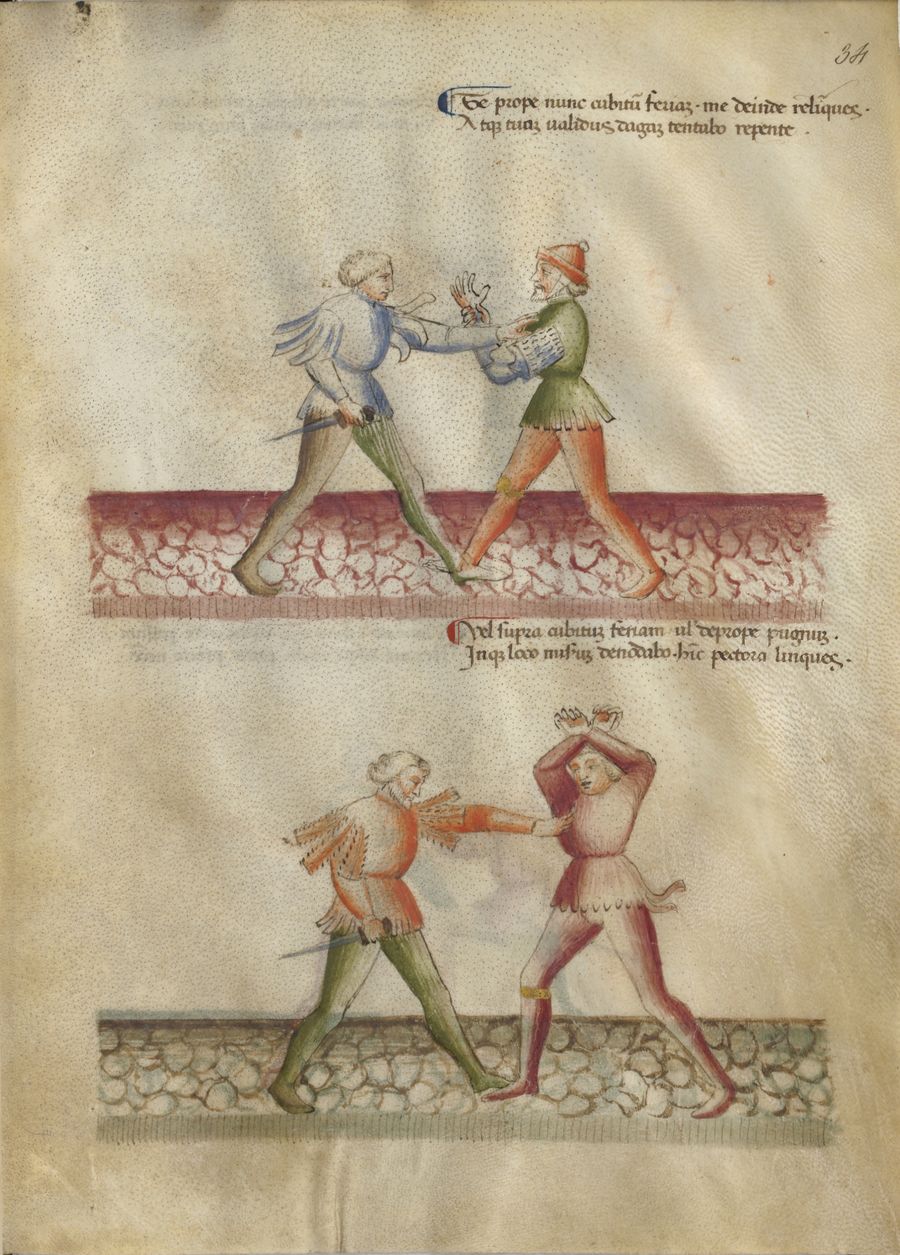|
|
You are not currently logged in. Are you accessing the unsecure (http) portal? Click here to switch to the secure portal. |
Difference between revisions of "User:Kendra Brown/Florius/English MS Latin 11269 34r"
< User:Kendra Brown | Florius
Jump to navigation
Jump to search
| (15 intermediate revisions by 2 users not shown) | |||
| Line 22: | Line 22: | ||
</noinclude> | </noinclude> | ||
<poem> | <poem> | ||
| − | {{par|b}} | + | ✅{{par|b}} I would strike you now near the elbow. Then you will leave me alone. |
| + | I, the Strong One, will unexpectedly attack your dagger. | ||
| − | {{par|r}} | + | ✅{{par|r}} I would strike either above the elbow or low near the fist. |
| + | And I will dislocate the wretched body part.<ref>'miserum' could refer to either elbow 'cubitum' or fist 'pugnum'. Technically, this should read 'the wretched thing in that part of the body'; however, we thought that a more compact phrasing was clearer.</ref> Hence you will leave the chest<ref>"Pectora linques" ("leave the chest") could be read two ways: giving up the original attack to the chest seen in the illustration, or consciousness departing the most vital area of the body in death.</ref>. | ||
</poem> | </poem> | ||
<noinclude>{{reflist}} | <noinclude>{{reflist}} | ||
[[file:MS Latin 11269 34r.jpg|900px]]</noinclude> | [[file:MS Latin 11269 34r.jpg|900px]]</noinclude> | ||
Latest revision as of 19:04, 15 July 2025
Latin 34r
- ¶ Te prope nunc cubitum feriam. me deinde relinques.
Atque tuam validus dagam tentabo repente.
- ¶ Vel supra cubitum feriam vel deprope pugnum.
Inque loco miserum denodabo. Hinc pectora linques.
Italian
|
Because of this injury near your elbow, it will convenience you to release me, |
[10a-f] Per questo ferire apresso el tuo cubito me conven lassar |
|
I will wound you near your fist or over your elbow; |
[10b-a] Apresso tuo pugno feriro o sopra el cubito |
English 34r
✅¶ I would strike you now near the elbow. Then you will leave me alone.
I, the Strong One, will unexpectedly attack your dagger.
✅¶ I would strike either above the elbow or low near the fist.
And I will dislocate the wretched body part.[2] Hence you will leave the chest[3].
- ↑ logo = luoco/luogo
- ↑ 'miserum' could refer to either elbow 'cubitum' or fist 'pugnum'. Technically, this should read 'the wretched thing in that part of the body'; however, we thought that a more compact phrasing was clearer.
- ↑ "Pectora linques" ("leave the chest") could be read two ways: giving up the original attack to the chest seen in the illustration, or consciousness departing the most vital area of the body in death.

